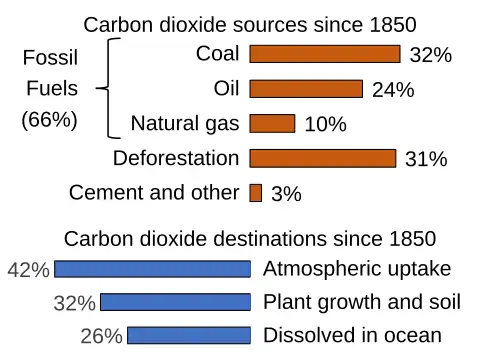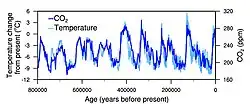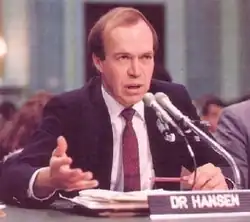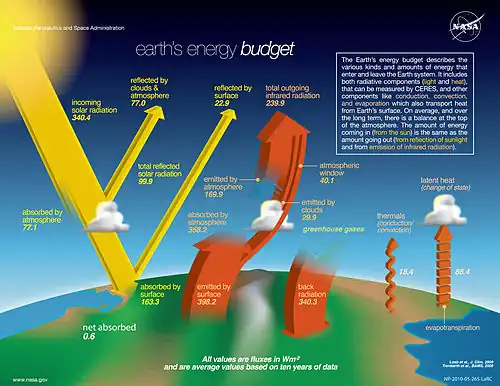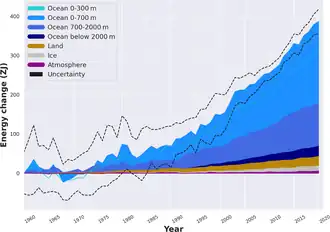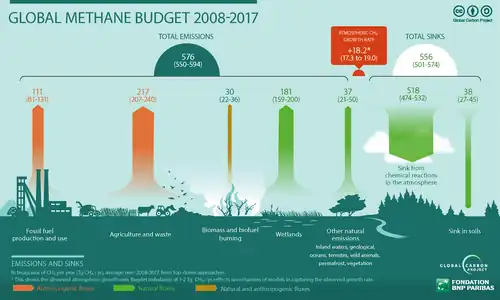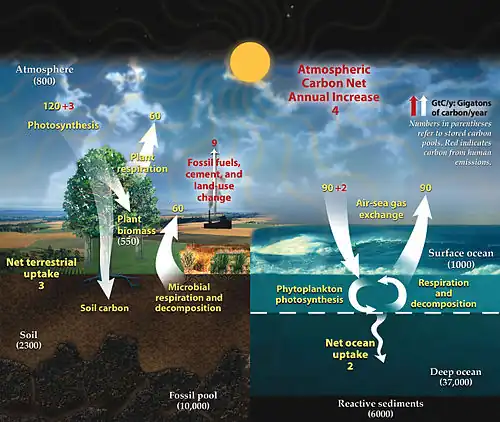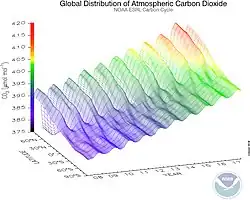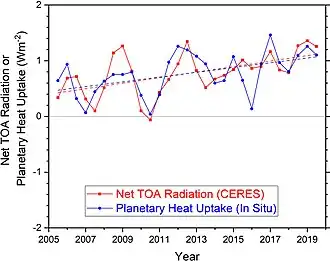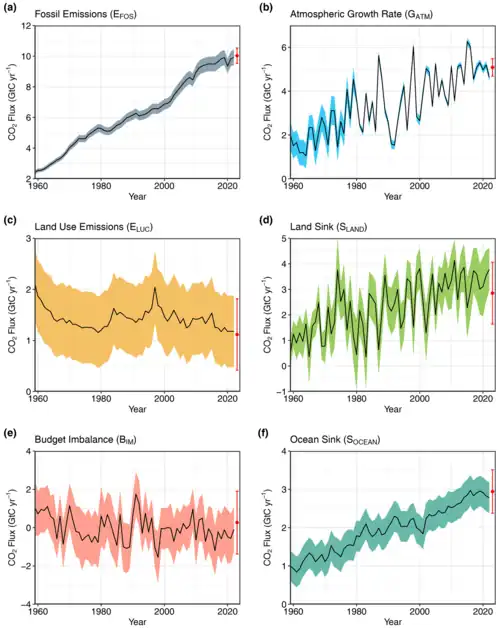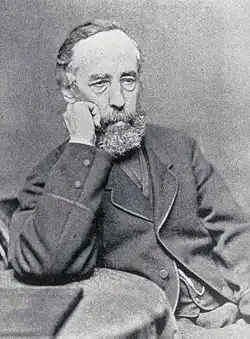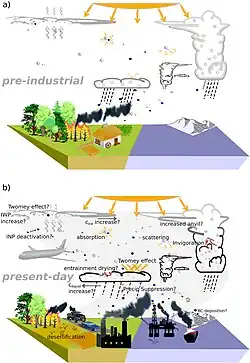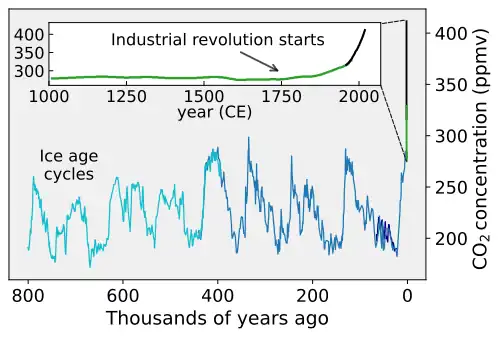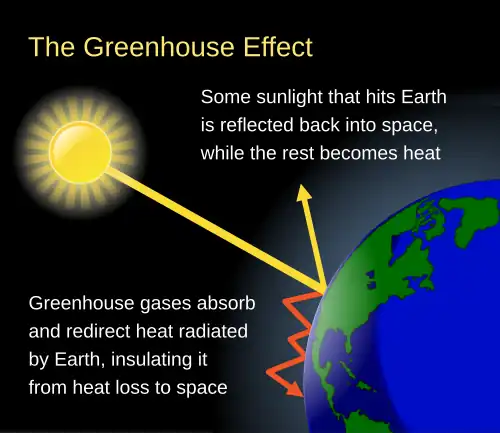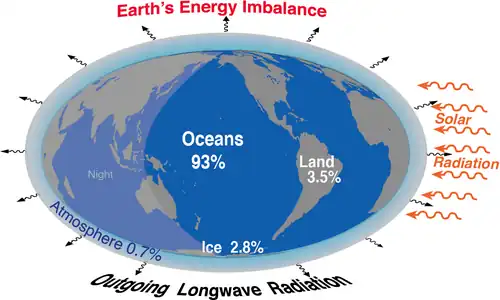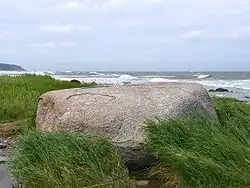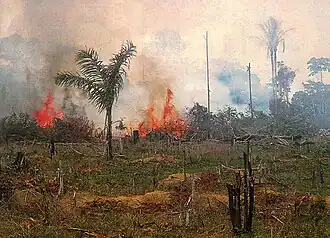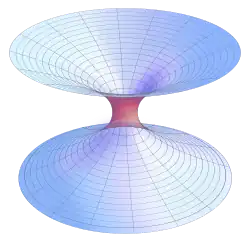Portal:Climate change
The Climate Change Portal Present-day climate change includes both global warming—the ongoing increase in global average temperature—and its wider effects on Earth's climate system. Climate change in a broader sense also includes previous long-term changes to Earth's climate. The current rise in global temperatures is driven by human activities, especially fossil fuel burning since the Industrial Revolution. Fossil fuel use, deforestation, and some agricultural and industrial practices release greenhouse gases. These gases absorb some of the heat that the Earth radiates after it warms from sunlight, warming the lower atmosphere. Carbon dioxide, the primary gas driving global warming, has increased in concentration by about 50% since the pre-industrial era to levels not seen for millions of years. Climate change has an increasingly large impact on the environment. Deserts are expanding, while heat waves and wildfires are becoming more common. Amplified warming in the Arctic has contributed to thawing permafrost, retreat of glaciers and sea ice decline. Higher temperatures are also causing more intense storms, droughts, and other weather extremes. Rapid environmental change in mountains, coral reefs, and the Arctic is forcing many species to relocate or become extinct. Even if efforts to minimize future warming are successful, some effects will continue for centuries. These include ocean heating, ocean acidification and sea level rise. Climate change threatens people with increased flooding, extreme heat, increased food and water scarcity, more disease, and economic loss. Human migration and conflict can also be a result. The World Health Organization calls climate change one of the biggest threats to global health in the 21st century. Societies and ecosystems will experience more severe risks without action to limit warming. Adapting to climate change through efforts like flood control measures or drought-resistant crops partially reduces climate change risks, although some limits to adaptation have already been reached. Poorer communities are responsible for a small share of global emissions, yet have the least ability to adapt and are most vulnerable to climate change. Many climate change impacts have been observed in the first decades of the 21st century, with 2024 the warmest on record at +1.60 °C (2.88 °F) since regular tracking began in 1850. Additional warming will increase these impacts and can trigger tipping points, such as melting all of the Greenland ice sheet. Under the 2015 Paris Agreement, nations collectively agreed to keep warming "well under 2 °C". However, with pledges made under the Agreement, global warming would still reach about 2.8 °C (5.0 °F) by the end of the century. Limiting warming to 1.5 °C would require halving emissions by 2030 and achieving net-zero emissions by 2050. There is widespread support for climate action worldwide. Fossil fuels can be phased out by stopping subsidising them, conserving energy and switching to energy sources that do not produce significant carbon pollution. These energy sources include wind, solar, hydro, and nuclear power. Cleanly generated electricity can replace fossil fuels for powering transportation, heating buildings, and running industrial processes. Carbon can also be removed from the atmosphere, for instance by increasing forest cover and farming with methods that store carbon in soil. (Full article...) Selected article –There are past and present public debates over certain aspects of climate change: how much has occurred in modern times, what causes it, what its effects will be, and what action should be taken to curb it now or later, and so forth. In the scientific literature, there is a very strong consensus that global surface temperatures have increased in recent decades and that the trend is caused by human-induced emissions of greenhouse gases. The controversies are now primarily political rather than scientific, as there is a scientific consensus that global warming is occurring and is driven by human activities. Public debates that also reflect scientific debate include estimates of how responsive the climate system might be to any given level of greenhouse gases (climate sensitivity). Disputes over the key scientific facts of global warming are more prevalent in the media than in the scientific literature, where such issues are treated as resolved, and such disputes are more prevalent in the United States and Australia than globally. (Full article...) Selected picture –This image shows the Arctic as observed by the Advanced Microwave Scanning Radiometer for EOS (AMSR-E) aboard NASA’s Aqua satellite on September 16, 2007. The image denotes a record sea ice minimum in the Arctic.
WikiProjects
In the newsAdditional News
Selected biography –Liu Zhenmin (Chinese: 刘振民; born August 1955) is a Chinese diplomat who was named as the country's special envoy for climate change on 12 January 2024. Previously he had served as the Under-Secretary-General for the United Nations Department of Economic and Social Affairs (DESA) from 2017 to 2022. He was appointed to that position effective on 26 July 2017. Prior to that he had served as Vice-Minister for Foreign Affairs of China after a thirty-year career in the Ministry of Foreign Affairs of the People's Republic of China. While at DESA, Liu promoted China's Belt and Road Initiative. (Full article...) General imagesThe following are images from various climate-related articles on Wikipedia.
Did you know –Related portalsSelected panorama –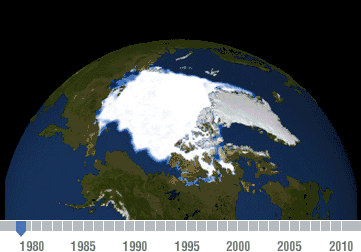 Credit: NASA Topics
Categories Climate change Climate change by country and region Climate change-related lists Climate change assessment and attribution Climate change and the environment Climate change feedbacks Greenhouse gases Climate change journals Climate change litigation Climate change mitigation Climate change and society Climate change stubs Web resources
Things to do
WikimediaReferences
Discover Wikipedia using portals
|
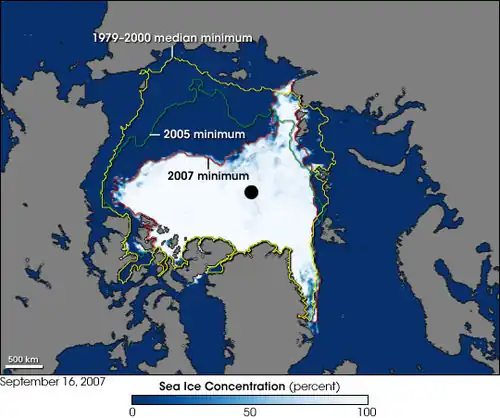

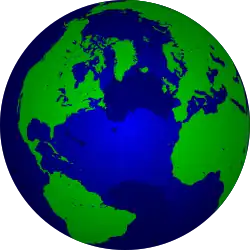
.jpg)
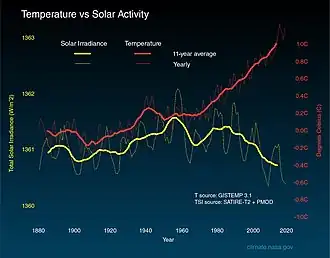
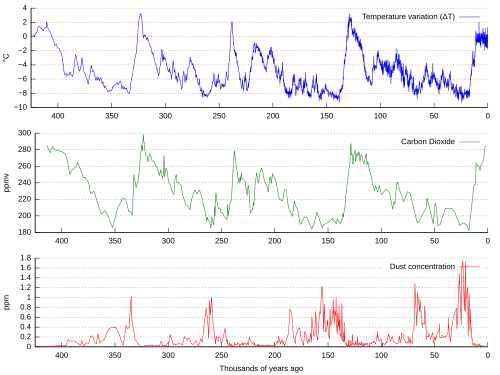
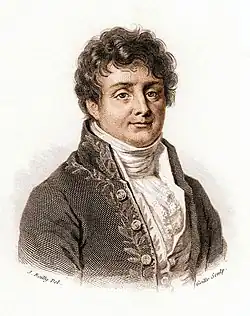
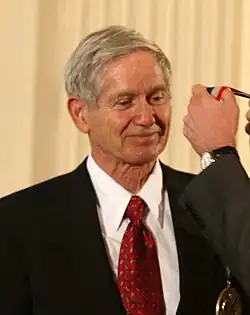


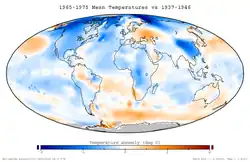
.jpg)

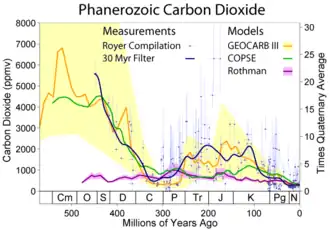


.svg.png)
.png)
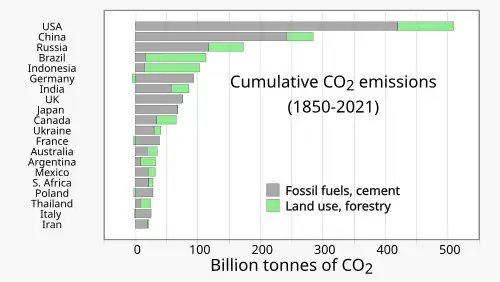
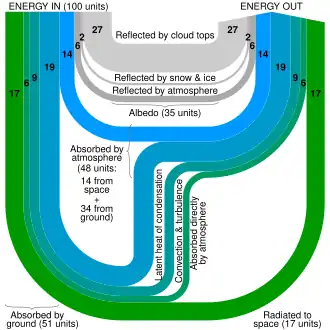
.svg.png)
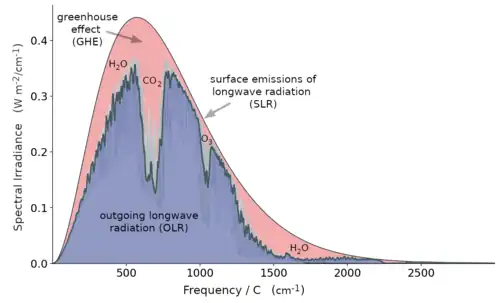

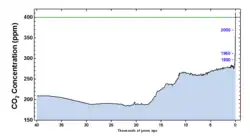
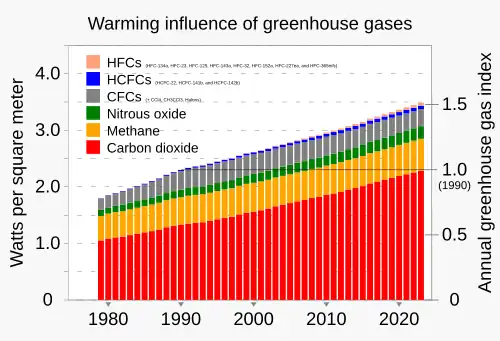
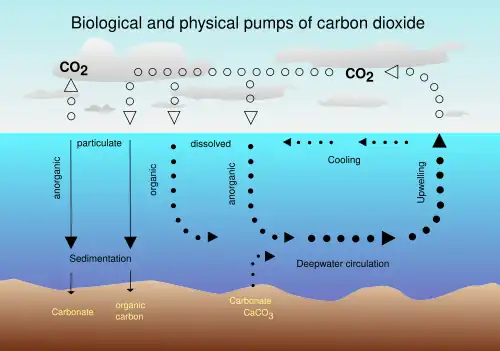

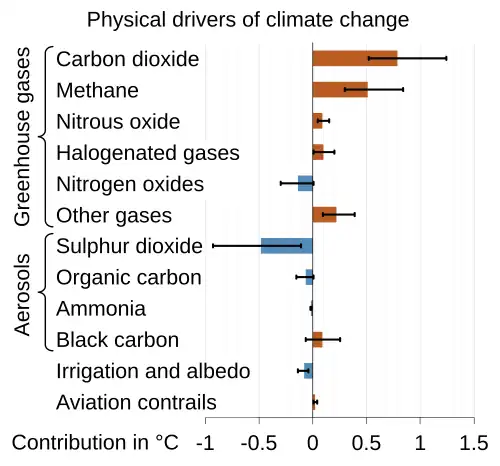
_at_the_top_of_the_atmosphere_(TOA).png)
